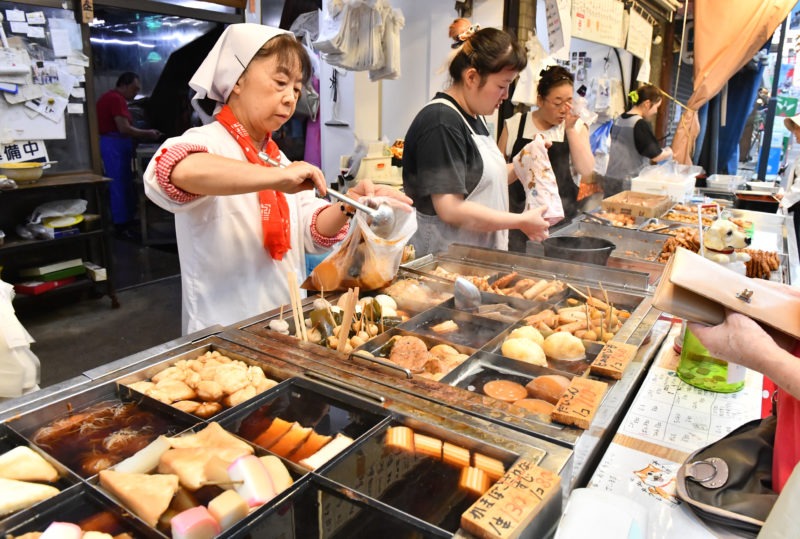Registers, rates and points: tax hike woes for Japan retailers
The long-awaited and twice delayed consumption tax hike will move Japan’s VAT from eight percent to 10 percent (Toshifumi KITAMURA)
Tokyo (AFP) – Cash register shortages, differing tax levels and a complicated points system: from October 1, Japan will have a new consumption tax and its complex regulations have left some retailers baffled.
The long-awaited and twice delayed consumption tax hike will move Japan’s VAT from eight percent to 10 percent — a key revenue source to fund government plans including free pre-school.
But a raft of exceptions and government efforts to use the hike to encourage cashless payments have left retailers fearing a meltdown.
In a bid to smooth out the impact of the hike on consumers, Japan has agreed to certain exemptions, including for food purchases, unless they are being eaten onsite.
That rule puts a range of retailers, from fast-food outlets and bakeries to Japan’s ubiquitous convenience stores, in a bind.
A bento box bought to be eaten outside qualifies for the old tax rate, but if the customer decides to eat in the small seating areas in many convenience stores, they face the new rate.
“Customers don’t necessarily know at the moment when they’re buying something what they’re going to eat here and what they’re going to take home,” said one frustrated bakery owner in Tokyo’s Shinagawa neighbourhood.
“We’re not going to monitor where they eat,” she added, speaking on condition of anonymity.
As a result, she has decided to simply apply the old eight percent tax rate to all her products and report all her sales as take-away.
“It would have been better to tax everything at 10 percent or leave all food at eight percent,” she said.
In Tokyo’s famed Tsukiji outer market, another retailer said he too would simply be recording all purchases as takeaway, even if customers consumed them onsite.
“Our cash register is capable of ringing up the different rates, but it’s too complicated, so we’ll leave everything at eight percent,” he said.
Other retailers are taking a different approach and will charge varying base prices for food items depending on whether they are eat-in or takeaway.
When the different tax rates are added, the prices will even out to one unified tax-inclusive figure.
– Cashless targets –
That solves another headache for retailers: switching over cash registers.
Many retailers now rely on machines that automatically add eight percent to a customer’s bill and will need to upgrade to ones that can add the new rate, or handle both rates.
“For the first time in Japan, different consumption tax rates will coexist,” said Kazu Ishikawa, head of strategy at Casio, Japan’s leading cash register manufacturer.
“But many retailers waited until the last minute (to switch registers) thinking the tax might not really go into effect because it was delayed twice before,” he said.
That has caused a massive backlog of orders, with requests exploding from the end of June when the government announced it would subsidise the purchases.
Around 40 percent of retailers still use “autonomous” registers, which are not connected to a central computer network and can’t be retrofitted.
The demand has forced Casio and other manufacturers to boost production, but they are still struggling to meet the looming deadline.
And there’s another spanner in the works: the government has decided to use the tax hike to nudge the country’s notoriously cash-loving consumers towards cashless payments.
A points system is being introduced that will reward customers with a refund of part of the tax rate if they pay for their purchases with a smart phone, card or another cashless system.
That has raised concerns about fraud after the disastrous rollout of convenience chain 7-Eleven’s cashless payments system, which was shut down days after starting because of a hack.
And exactly how to implement the points system remains a mystery for many retailers. Only some qualify, and there are different methods for different shops.
“People know about the points system, but they don’t understand it,” Ishikawa said.
Disclaimer: Validity of the above story is for 7 Days from original date of publishing. Source: AFP.


